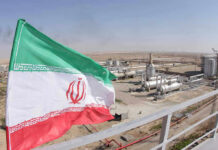Amidst growing Russian threats, Defense Secretary Pete Hegseth’s directive to stop intelligence operations has sparked intense debate on national security.
Quick Takes
- U.S. Cyber Command ordered by Hegseth to halt operations against Russia.
- The move aims at bringing Russia to the negotiation table on Ukraine.
- Critics fear it may leave the U.S. vulnerable to cyberattacks.
- The National Security Agency’s work remains unaffected.
Hegseth’s Controversial Directive
U.S. Cyber Command received orders from Defense Secretary Pete Hegseth to cease offensive operations targeting Russia. The directive, first reported by The Record and corroborated by Newsweek, aims to push Russian President Vladimir Putin to engage in discussions regarding the war in Ukraine. This decision comes as the Biden administration has previously labeled Russia a global cyber threat due to its activities targeting American interests.
The Pentagon, citing operational security, has refrained from commenting on the specifics of the order. Nevertheless, critics argue that pausing these cyber operations might increase the U.S.’s vulnerability to potential Russian cyberattacks, especially those targeting critical infrastructure. This suspension is part of broader U.S. efforts to reassess operations against Russia.
Reactions and Criticisms
The order was addressed to Cyber Command Chief General Timothy Haugh and communicated to Marine Corps Major General Ryan Heritage. Despite the pause in operations, the cybersecurity mission, led by the Cybersecurity and Infrastructure Security Agency, remains unaltered. Aspects of the NSA’s signals intelligence efforts remain ongoing, providing crucial insights amid this operational gap.
Key political figures, including Senate Minority Leader Chuck Schumer, voiced concerns over this strategic move. They view the halt as an unnecessary concession that may embolden Russia’s cyber aggression against the U.S. and allies.
Implications for U.S.-Russia Relations
These unfolding dynamics underline the complex web of international relations today, with key stakeholders navigating through diplomatic challenges and cybersecurity threats. While the decision to pause cyber operations invites criticism, it also opens up avenues for renewed dialogue with Russia, setting the stage for potential diplomatic shifts.
“Donald Trump is so desperate to earn the affection of a thug like Vladimir Putin he appears to be giving him a free pass as Russia continues to launch cyber operations and ransomware attacks against critical American infrastructure, threatening our economic and national security,” said Senate Minority Leader Chuck Schumer.
The full implications of Hegseth’s order are yet to be seen, as global politics evolve amidst ongoing cyber threats and geopolitical challenges.
Sources:
- https://www.telegraph.co.uk/world-news/2025/03/02/pentagon-hegseth-orders-spies-russia-cyber-threats/
- https://www.newsweek.com/hegseth-cyber-russia-order-2038563
- https://www.nbcnews.com/politics/trump-administration/defense-secretary-pete-hegseth-orders-halt-offensive-cyber-operations-rcna194435
- https://feedpress.me/link/20202/16974403/pentagon-hegseth-orders-spies-russia-cyber-threats











